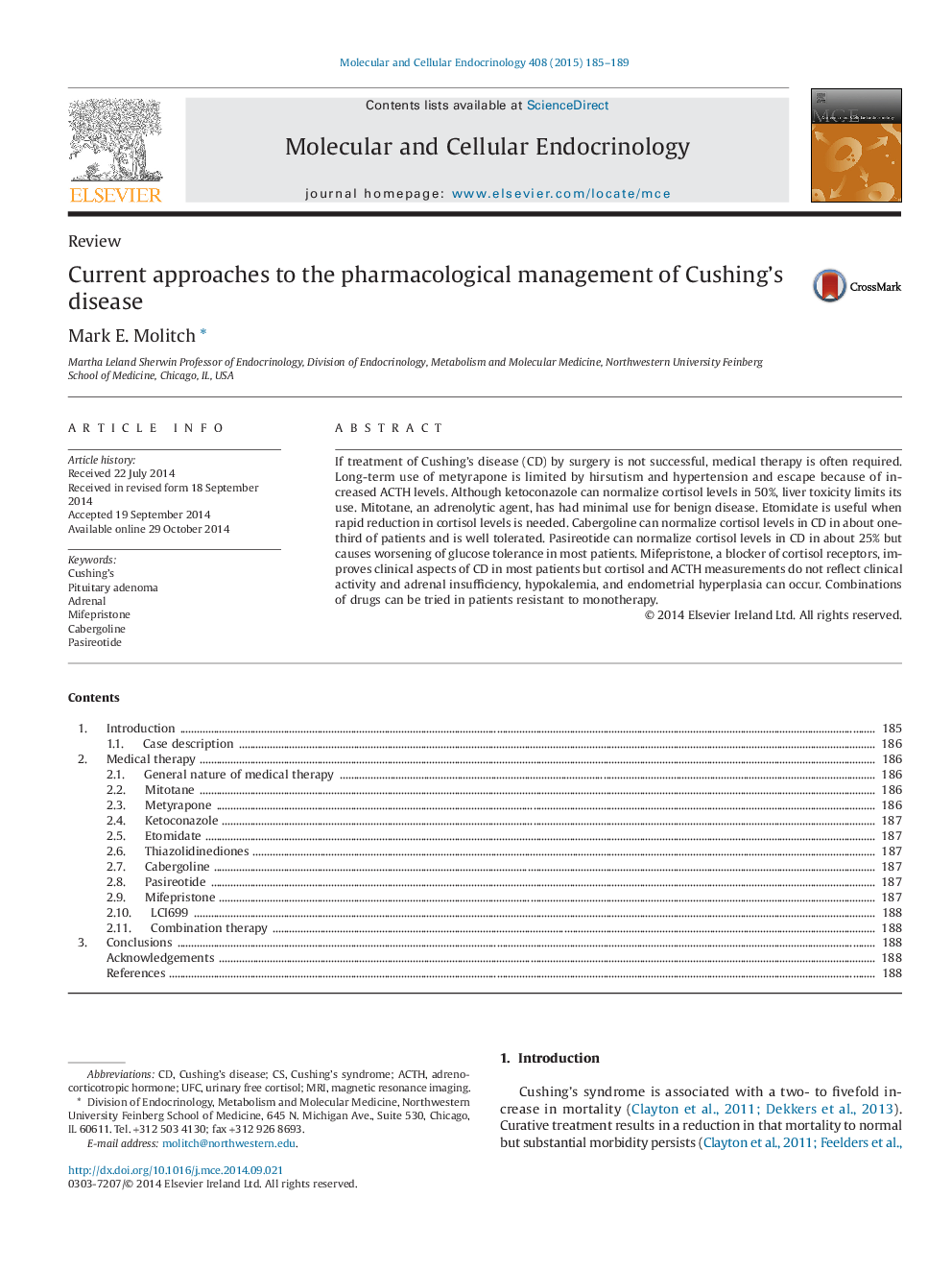| Article ID | Journal | Published Year | Pages | File Type |
|---|---|---|---|---|
| 2195830 | Molecular and Cellular Endocrinology | 2015 | 5 Pages |
•Medical therapy for Cushing's syndrome is indicated when surgery fails to cure.•Only currently approved medications are mifepristone and pasireotide.•Mifepristone: Effective but adverse effects of hypokalemia and endometrial hyperplasia.•Pasireotide: Less effective and adverse effect of hyperglycemia.•Cabergoline may be useful in patients with mild disease.•Combination therapy may be useful in resistant patients.
If treatment of Cushing's disease (CD) by surgery is not successful, medical therapy is often required. Long-term use of metyrapone is limited by hirsutism and hypertension and escape because of increased ACTH levels. Although ketoconazole can normalize cortisol levels in 50%, liver toxicity limits its use. Mitotane, an adrenolytic agent, has had minimal use for benign disease. Etomidate is useful when rapid reduction in cortisol levels is needed. Cabergoline can normalize cortisol levels in CD in about one-third of patients and is well tolerated. Pasireotide can normalize cortisol levels in CD in about 25% but causes worsening of glucose tolerance in most patients. Mifepristone, a blocker of cortisol receptors, improves clinical aspects of CD in most patients but cortisol and ACTH measurements do not reflect clinical activity and adrenal insufficiency, hypokalemia, and endometrial hyperplasia can occur. Combinations of drugs can be tried in patients resistant to monotherapy.
